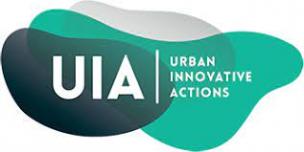SUMMARY
The more complex life course of socially disconnected people, with longer periods of homelessness and insecurity, with addictions and other psychiatric problems, require new types of response.
The main objective of the project is to develop solutions based on 5 bridges: employment, housing and health, living together and empowerment towards inclusion of people in a situation of exclusion.
5Bridges is creating a social urban equipment included in a sustainable, multifunctionnal and liveable area, for: jobs (neighbourhood-restaurant, urban farm, solidarity-shop); housing (temporarily housing as well as social housing); health (low-threshold care, self-esteem activities, gardening); inclusion (active participation alongside solidarity-based involvement of neighbours), empowerment through involvement.
A key element of the project is that before the delivery of the building, 5Bridges has implement small scale labs to test and develop new services, methodologies and approaches that will be integrated in this first social urban equipment of this kind in Europe.
The experimentation of short term contracts is a real success, the first results are the following: out of 16 people affected, 14 people emerged positively to another type of contract. These positive exits took place after an average of 110 hours on the system.
The modern and innovative architecture is designed to allow everyone to feel confortable on the site and thus promote the mix of uses and public.
The innovative solution
Homelessness is one of the key challenges for cities in their fight against urban poverty. Nantes’ global aim is to be a green, innovative and liveable city FOR ALL. Social cohesion is at the heart of all its public policies. Today, the more complex way of living of socially disconnected people - including longer periods of homelessness and insecurity - requires new types of answers. Meanwhile, socially excluded groups feel socially stigmatised due to their difference.
5Bridges project experiment innovative solutions to tackle urban poverty: building an innovative urban equipment, a one-stop shop for different social groups where they can meet : a restaurant, an urban farm, a solidarity store, as well as solidarity-based housing, low threshold health care, and social services opened 24/24 and 7/7; developing an innovative approach: placing the user at the heart of the project's choices and including neighbours to facilitate the integration
A collaborative and participative work
The partnership is composed of 6 partners, each of them intervening in their own field of expertise. This partnership between public, private and associative actors has made it possible to carry out this innovative project (Ville de Nantes, Nantes Metropole - Organised Agglomeration, Association Les Eaux Vives – NGO, CDC Habitat - Public/Private Company, Société d’Aménagement de la metropole ouest atlantique (Samoa) - Public/Private Company, Association Emmaus 44 - NGO)
The project is planning to impact 2000 persons per year : homeless, badly housed or disconnected people, in Nantes and surroundings. During the years of experimentation, the target groups have been involved in the choices concerning the equipment.
The equipment now called “5Bridges solidarity village” will be managed by a NGO created by the occupants of the site.
The impact and results
The implementation phase of the project was characterised by two main activities: the construction of the equipment; and setting up small-scale labs to test and optimise the different designed answers that will be integrated in this social urban equipment.
The project had to face many hazards, particularly related to the construction of the building. The partnership's human resources and tools made it possible to meet the challenges related to financial or scheduling risks, sometimes by imagining more interesting solutions than the original proposal.
Results have been achieved regarding: empowerment and social inclusion through sustained active involvement of users; economic inclusion of users in small scale working labs, providing a work experience and short working contracts; sustainable housing solutions and satisfactory appropriation of mixed social housing; increased expertise of staff and users about support, based on the peer interventions of social workers, volunteers and users.
Why this good practices should be transferred to other cities?
The European Observatory on Homelessness reported in 2014, that homelessness is a growing issue in Europe. FEANTSEA (2010) stressed that the predominant model is that local authorities have the main responsibility for enabling and steering such services and NGOs are the main service providers, financed to a large extent by municipalities.”
Here are some targeted local issues:
- 2337 persons have never been accommodated in 2014 in Nantes
- Lack of coordinated social support services 24/24 and 7/7
- Existing structures do not always properly match social/healthcare/housing offers with the users' needs, and their geographic dispersal creates an “organised wandering” throughout the city.
5Bridges project can be duplicated by other European cities as:
- It provides a solution to a situation they also face: mismatch between the offer (outdated accommodation, dispatched social services, lack of integrated answers) and the growing and changing needs, which require a integrated and comprehensive answer to homelessness.
- It relies on a mix of competences and expertise (social work, health care, citizen participation, urban planning) and a portfolio of local stakeholders (NGOs, health services, social housing promoters…) that can be activated by all European cities.
Many documents and reports have been produced during the implementation of the 5Bridges project and can be provide to other cities willing to duplicate the project.


